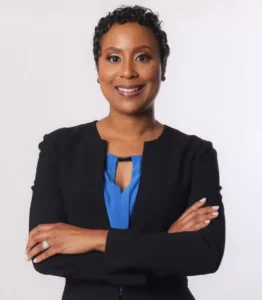Table of Contents
If you sustained accidental injuries, the associated expenses are probably adding up fast. From medical bills to lost wages, the damages you incur over the course of your recovery may quickly seem insurmountable.
Thankfully, you might be entitled to compensation. Depending on the circumstances surrounding the accident in which you were hurt, you could have grounds for a personal injury claim.
If you’re wondering whether calling a personal injury attorney and discussing the situation is worth it, read on. Here are some of the biggest signs you’ve got a case:
1. You Were Not Wholly to Blame for the Accident
As long as you were not entirely responsible for your injuries, you should be able to file a claim. Under Mississippi tort law, partial liability does not bar a plaintiff from seeking compensation; however, it does reduce the potential payout accordingly. Put another way, if you did play a role in the accident, the settlement or judgment that results — assuming your claim is successful — will be reduced by your own percentage of fault.
2. Someone Else Was to Blame for the Accident
Some accidents are virtually impossible to pin on anyone. They’re utter flukes, and no one could have done anything to prevent them. When this is the case, victims do not have much, if any, legal recourse. If you were hurt in a severe weather event, for example, you probably don’t have grounds for a claim.
If, on the other hand, someone else was clearly responsible for the accident that caused you harm, it’s reasonable to assume you can take action against them. First, however, you’re going to have to find a way to convince their insurance carrier of their liability.
3. You Incurred Actual Damages as a Result of Your Injuries
If you sustained little more than scrapes and bruises that did not require medical attention, you will probably have a hard time making a case for damages. To have a valid claim, you must have incurred actual, recoverable damages as a direct result of the accident.
Under Mississippi tort law, such damages might include:
- Medical expenses
- Lost wages
- Loss of future earnings
- Property repairs
- Replacement services
- Home and vehicle modifications
- Pain and suffering
- Physical impairment
- Disfigurement
- Emotional distress
- Inconvenience
- Mental anguish
- Loss of life enjoyment
If you’re married and your injuries are affecting your relationship, your spouse may also have grounds for a loss of consortium claim. Loss of consortium refers to the loss of love, companionship, affection, and society that people suffer when their husband or wife gets seriously hurt.

Contact the Wrongful Death Attorneys at Brown Bass & Jeter Today
Submit for a Free Case Review!
Reach out and contact our Jackson, MS personal injury attorney today for a free case evaluation.
Discuss Your Case with a Personal Injury Lawyer in Jackson
If you think you might have grounds for a personal injury claim, turn to Brown Bass & Jeter, PLLC. Our compassionate team will listen to you, advocate for you, and ultimately help you pursue every dollar you deserve. Call 601-487-8448 or submit the Contact Form on our website to schedule a free initial consultation with a personal injury attorney in Jackson.



